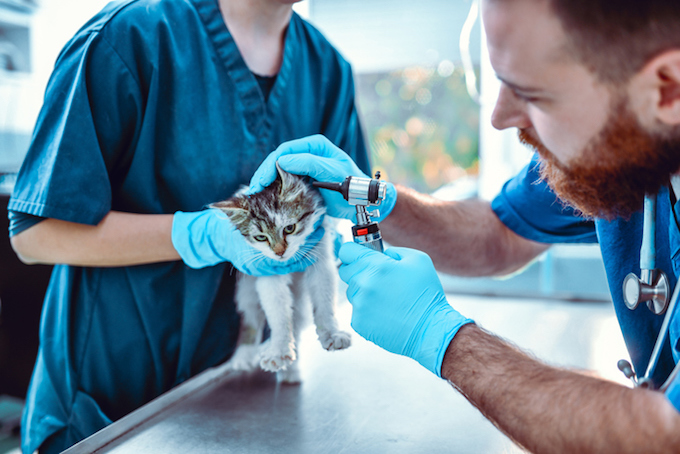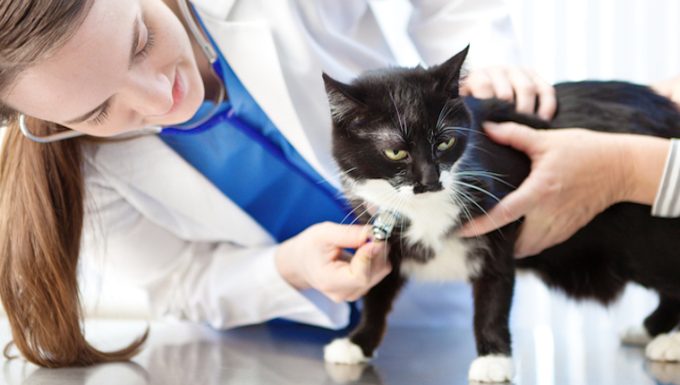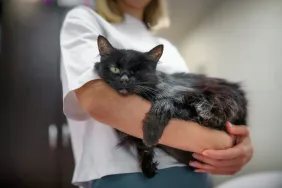Epileptic seizures in cats usually happen due to a brain dysfunction. The cause can be a number of things, including trauma, toxic chemicals, and infection.
If you see the signs of the condition in your cat, then get to a veterinarian for a proper diagnosis and treatment.
Here’s what you should know about the symptoms, causes, and treatments for the condition.
Symptoms of Epileptic Seizures in Cats
The condition produces a number of symptoms. For example, some of the most common symptoms include:
- Losing consciousness
- Drooling
- Peeing involuntarily
- Pooping involuntarily
- Convulsions
- Pacing
- Muscles contracting
- Hallucinations
- Running around in circles
Additionally, the condition usually takes place in three stages. Firstly, a cat can seem restless and salivate. Secondly, a cat may vomit, run in circles, and experience convulsions. Thirdly, a cat will seem uncoordinated and confused.
Causes of Epileptic Seizures in Cats

The cause of the condition can be a number of things. For example, some of the potential causes include:
- Infection
- Chemicals
- Trauma
- Tumors
- Genetic factors
Treatments for Epileptic Seizures in Cats
Firstly, your vet will ask about your cat’s symptoms. Secondly, your vet will ask about any circumstances where your cat could have suffered a head trauma or ingested toxic chemicals.
Thirdly, a full physical examination will be carried out. Blood and urine tests will be taken. Also, an electrocardiogram (EKG) will be used to rule out other conditions.
Generally, treatment will involve your vet prescribing anticonvulsant medication. This is so that you can control any further epileptic seizures that your cat might experience.
As always, if your vet prescribes your cat any medicine, make sure to stick to the correct dose and frequency instructions. Also, complete the full course of medicine.
Finally, you can read more about seizures in cats in general over here.
Have you ever cared for a cat who suffered from this condition? How did your vet help your cat recover? Let us know in the comments section below.









